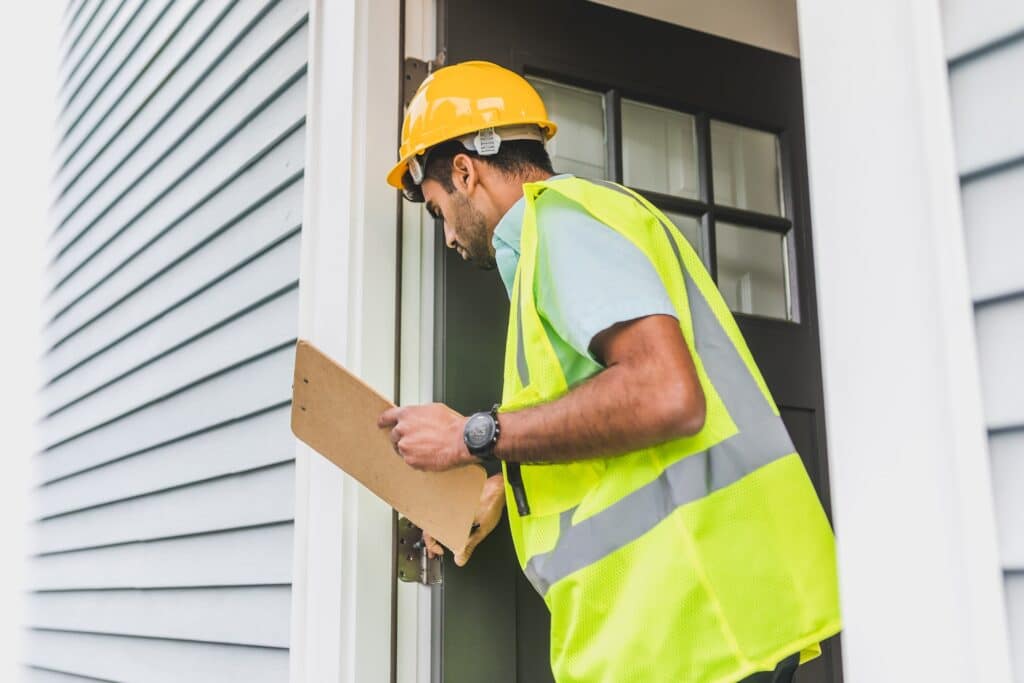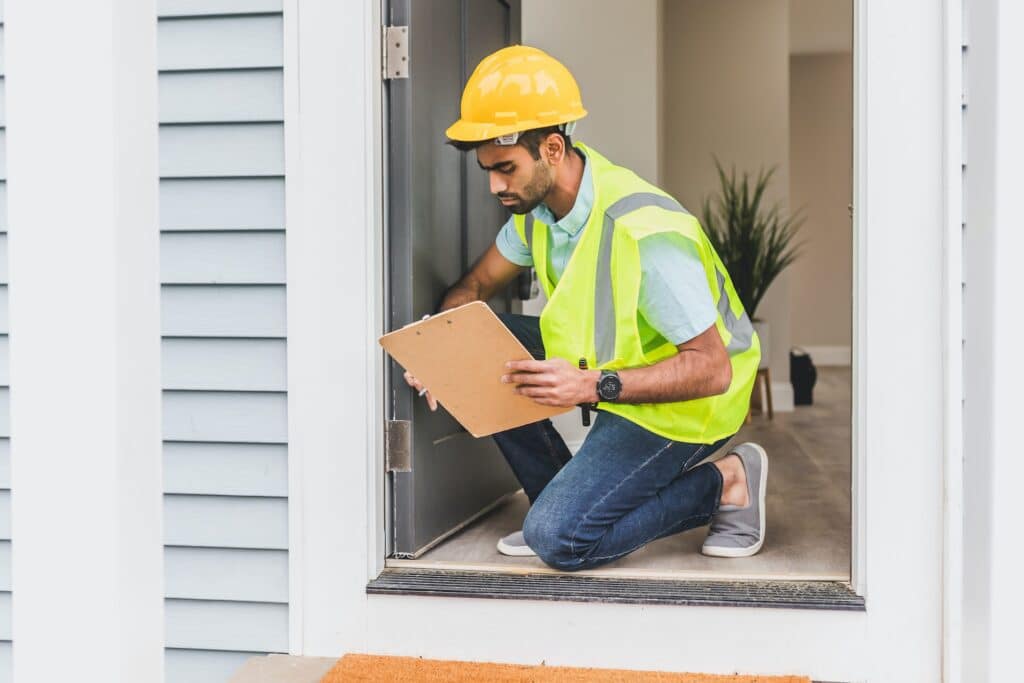Embarking on a construction project is a venture laden with both excitement and responsibility. Whether you’re building a dream home or a commercial space, ensuring the safety, quality, and compliance of your project is paramount. This is where a building inspector steps in as a guardian of your construction journey. In this blog, we delve into the essential considerations for hiring the right building inspector to oversee your project’s success.
From understanding the nuanced role of a building inspector to deciphering the significance of their qualifications and credentials, this blog takes you through a comprehensive guide to making an informed choice. We’ll explore how to determine whether you need a residential or commercial specialist, provide tips for conducting effective interviews, and emphasize the importance of checking references and previous inspections to guarantee reliability.
As cost considerations often play a significant role, we’ll help you strike a balance between affordability and value for your money. Additionally, we’ll shed light on the legal dimensions of hiring a building inspector, from licenses and insurance to crafting meticulous contractual agreements. Lastly, we guide you on how to make the most of your building inspection – transforming findings into actionable steps that contribute to the long-term success of your project.
Understanding the role of a building inspector
When embarking on any construction project, whether it’s a new home, a commercial building, or a renovation, the role of a building inspector becomes crucial. A building inspector is a trained professional responsible for assessing the safety, compliance, and quality of construction projects. Their primary goal is to ensure that buildings meet local and national building codes, regulations, and standards.
Building inspectors have a multifaceted role that goes beyond a mere cursory glance at structures. They inspect various aspects of a project, including the foundation, structural components, electrical systems, plumbing, HVAC (Heating, Ventilation, and Air Conditioning), and overall safety features. By meticulously examining these elements, inspectors help identify potential hazards, structural weaknesses, or violations that could compromise the integrity of a building or the safety of its occupants.
These professionals possess a keen eye for detail and a deep understanding of construction practices and codes. Their role helps prevent shoddy workmanship, ensures buildings are constructed in a way that minimizes risks, and safeguards the interests of property owners and the general public. From foundation to finishing touches, a building inspector’s involvement guarantees that every phase of a project aligns with the approved plans and industry standards, fostering trust in the construction process and the final result. Whether you’re a homeowner or a developer, comprehending the pivotal role of a building inspector is the first step toward a successful and secure construction venture.
The importance of qualifications and credentials
When it comes to hiring a building inspector, qualifications and credentials should be at the forefront of your considerations. The competence and expertise of the inspector can significantly impact the quality and reliability of your construction project assessment.
First and foremost, look for inspectors who possess relevant education and training in fields like civil engineering, architecture, construction management, or a related discipline. These educational backgrounds equip inspectors with a strong foundation of technical knowledge, enabling them to better evaluate the various aspects of a building’s construction and safety.
In addition to formal education, certifications from reputable organizations further validate an inspector’s skills and expertise. Industry-recognized certifications, such as those from the International Code Council (ICC) or the National Association of Home Inspectors (NAHI), demonstrate a commitment to upholding professional standards and staying updated on the latest building codes and regulations.
When hiring a building inspector, inquire about their experience in the field. An inspector with a proven track record of successful inspections is likely to bring valuable insights to your project. Moreover, their experience enhances their ability to identify potential issues and provide accurate assessments.
In a field as critical as building inspection, qualifications and credentials act as a testament to an inspector’s reliability and competence. By prioritizing these factors, you can ensure that your chosen inspector is well-equipped to provide thorough, accurate, and trustworthy evaluations of your construction endeavors.
Determining the specialization you need
When seeking a building inspector, it’s essential to consider the specific specialization that aligns with your project’s nature – residential or commercial with the building inspector assessment. Each of these realms comes with unique requirements, regulations, and complexities that demand a tailored approach from the inspector.
Residential building inspections involve assessing single-family homes, apartments, condos, and other housing structures. These inspections focus on factors such as structural integrity, safety features, electrical and plumbing systems, and overall habitability. A residential-focused inspector should be well-versed in the needs and concerns of homeowners and possess the skills to identify potential issues that might affect the occupants’ comfort and safety.
On the other hand, commercial building inspections encompass a broader range of properties, including office buildings, warehouses, retail spaces, and more. Commercial inspections delve into intricate systems like HVAC, fire protection, accessibility compliance, and zoning regulations. Inspectors specializing in the commercial domain should understand the intricacies of business operations and be able to assess whether a building meets the standards for its intended use.
Selecting an inspector with the appropriate specialization ensures that you receive a thorough evaluation tailored to your project’s requirements. Whether you’re building a home or establishing a commercial space, a qualified inspector who understands the specific demands of your project can make a substantial difference in the success of your endeavor.

Interview tips for selecting an inspector
When it’s time to hire a building inspector, conducting a comprehensive interview can be the key to finding the right fit for your project. Armed with a list of pertinent questions, you can gather crucial information to assess the inspector’s expertise, approach, and compatibility with your needs.
Begin by inquiring about the inspector’s qualifications, education, and relevant certifications. Ask about their experience within your project’s specific scope – be it residential or commercial. Discuss their familiarity with local building codes and regulations to ensure they’re well-versed in the guidelines that govern your area.
Probe into their methodology during inspections. How detailed are their assessments? What specific areas do they focus on? Do they use advanced tools or technology to enhance their evaluations? An inspector’s approach should align with your expectations for a comprehensive and accurate evaluation.
Don’t shy away from asking for references or examples of past inspections. Hearing about their previous clients’ experiences can give you insight into their professionalism, communication, and the quality of their assessments.
Lastly, discuss their availability and turnaround time for delivering inspection reports. Timeliness is often crucial in construction projects, and an inspector who can provide prompt yet thorough reports is invaluable.
In the process of hiring a building inspector, asking these targeted questions can help you gauge their expertise, reliability, and compatibility with your project’s needs. A well-informed decision will not only contribute to a successful inspection but also to the overall success of your construction endeavor.
Checking references and previous inspections
Before finalizing your decision on a building inspector, a crucial step is to thoroughly examine their references and previous inspection records. This due diligence can provide valuable insights into their reliability, professionalism, and the quality of their assessments.
Start by requesting a list of references from the inspector. Reach out to past clients and inquire about their experiences working with the inspector. Ask about the inspector’s communication skills, attention to detail, and the thoroughness of their evaluations. Positive references can indicate a history of dependable service.
In addition to references, ask the inspector for samples of their past inspection reports. Reviewing these reports can give you a clear picture of their level of detail and the comprehensiveness of their findings. Look for reports that are well-organized, easy to understand, and address various aspects of the inspected property.
If possible, try to find out if the inspector has experience with projects similar to yours – whether it’s the type of property, the scope of work, or the specific challenges your project might entail. An inspector who has successfully tackled similar projects in the past is more likely to provide a reliable assessment for your own endeavor.
By diligently checking references and reviewing past inspection reports, you can gain confidence in the inspector’s capabilities and trust that they will deliver a thorough and accurate evaluation for your construction project.
Getting value for your money
While hiring a building inspector, it’s essential to balance cost considerations with the value you’ll receive from their services. Opting for the cheapest option might not necessarily guarantee the most comprehensive inspection, and making an informed decision involves evaluating the potential value for your investment.
Start by obtaining quotes from multiple inspectors, keeping in mind that exceptionally low prices could be indicative of a lack of experience or thoroughness. It’s crucial to find a balance between affordability and the level of expertise you require.
Consider what services are included in the quoted price. A more comprehensive inspection might come with a slightly higher cost, but it can uncover hidden issues that could save you substantial expenses in the long run. Look for inspectors who offer detailed reports with clear explanations, photographs, and recommendations for addressing any identified concerns.
Evaluate the inspector’s overall reputation and track record. A higher-priced inspector with a proven history of accurate assessments and satisfied clients could offer more value than a cheaper alternative with less experience.
Remember, the cost of an inspection should be seen as an investment in the safety and quality of your construction project. By weighing the quoted prices against the potential benefits and the level of expertise offered, you can make an informed decision that ensures you receive genuine value for your money and a thorough evaluation that safeguards your investment.
Licenses, insurance, and contractual agreements
Navigating the legal aspects of hiring a building inspector is a crucial step to ensure a smooth and secure process for your construction project. This involves verifying the inspector’s licenses, insurance coverage, and establishing clear contractual agreements.
First and foremost, inquire about the inspector’s licenses and certifications. These credentials demonstrate that the inspector has met the necessary qualifications to perform inspections in your area. Verify the validity of their licenses and ensure they are up-to-date with the latest regulations.
Insurance coverage is equally important. A reputable inspector should have professional liability insurance, commonly known as errors and omissions insurance. This coverage protects both you and the inspector in case of errors or omissions in their assessments that could lead to financial losses.
Establishing clear contractual agreements is essential to avoid misunderstandings. The contract should outline the scope of the inspection, the specific areas to be assessed, the inspection timeline, and the cost. It should also detail the process in case any issues or discrepancies arise during or after the inspection.
Review the contract thoroughly before signing and don’t hesitate to ask questions or seek legal advice if needed. A well-drafted contract sets the expectations and responsibilities of both parties and safeguards your interests throughout the inspection process.
By addressing these legal aspects, you can mitigate potential risks, ensure compliance with regulations, and foster a transparent and professional working relationship with the building inspector.

Making the most of your building inspection
After hiring a building inspector, your role doesn’t end with their appointment. Maximizing the benefits of your building inspection requires proactive engagement and strategic planning.
Start by reviewing the inspection report thoroughly. Pay close attention to identified issues, their severity, and the recommended solutions. This information will guide your decision-making as you address any necessary repairs or improvements.
If the inspection report uncovers significant problems, consider consulting with professionals in the relevant fields, such as contractors or engineers. Their expertise can help you understand the extent of the issues and plan appropriate remedies.
Prioritize the issues based on their urgency and impact on safety, structural integrity, or compliance. Addressing critical problems promptly can prevent further damage and expenses down the line.
Keep a clear line of communication with the building inspector. If you have questions about the report or need clarification on any findings, don’t hesitate to reach out. A good inspector will be willing to provide additional information or insights to ensure you have a comprehensive understanding.
Finally, remember that a building inspection is an investment in the long-term success of your construction project. Use the insights gained from the inspection to make informed decisions about repairs, renovations, and ongoing maintenance.
By actively engaging with the inspection report, seeking expert advice where necessary, and maintaining communication with the inspector, you can effectively translate the inspection findings into actionable steps that enhance the quality and safety of your building project.
Conclusion
In the realm of construction, making the right decisions at every step is pivotal. Hiring a skilled and knowledgeable building inspector is a decision that can influence the safety, quality, and success of your project. Through the insights provided in this blog, you’re now equipped with the tools to navigate this crucial process with confidence.
Remember, a building inspector is more than just an evaluator; they are your partners in ensuring that your construction journey unfolds smoothly, adheres to regulations, and results in a space that meets the highest standards. By understanding the role, qualifications, and specializations of an inspector, asking pertinent questions, checking references, and keeping the legal aspects in mind, you’re well-prepared to embark on a construction journey that’s both informed and secure.
Testlify offers a range of assessments and challenges that allow you to gauge candidates’ knowledge, problem-solving skills, and creativity in real-world scenarios. With Testlify, you can administer real-world challenges that simulate the actual assessment process, giving candidates the opportunity to showcase their skills and approach. The platform provides a structured and standardized assessment process, allowing you to compare candidates objectively and make informed decisions. By incorporating Testlify into your hiring process, you can ensure a more comprehensive and reliable evaluation of candidates, ultimately helping you identify the most qualified individuals for your team.
With our extensive test library, you can objectively evaluate candidates’ abilities, ensuring you shortlist the most talented individuals efficiently. Ready to unlock the potential of your hiring process? Book a free 30-minute live demo with Testlify. Our expert team will guide you through the platform, showcasing relevant skill tests tailored to your organization’s needs. With our support, you can streamline candidate selection, saving valuable time and resources.








